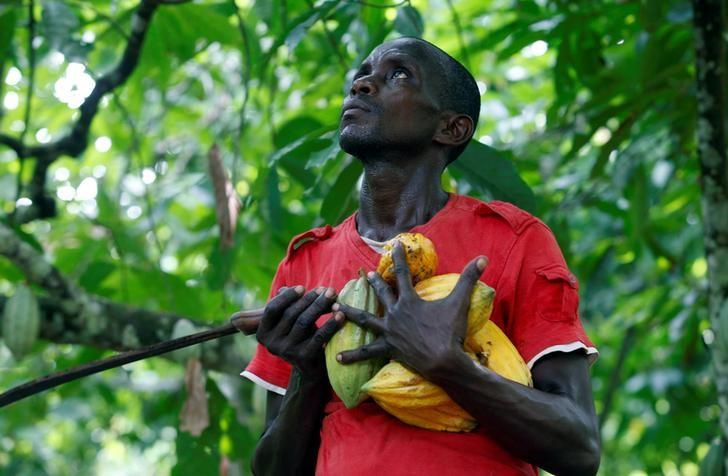By Ghana News
Copyright ghanamma

Onome Amuge
Cocoa prices fell on Tuesday, extending a seven-week downturn as rising deliveries in Ghana and optimism over West Africa’s next harvest weighed on the market, while slowing chocolate sales raised further questions about demand.
In New York, December ICE cocoa futures dropped 3.6 per cent, or $249, to close at their lowest level in 11 months. London cocoa futures for December delivery declined 2.5 per cent, or £120, to a 19-month low.
The sell-off was sparked by data showing a sharp acceleration in Ghana’s port arrivals. Deliveries in the four weeks to September 4 surged to 50,440 metric tonnes, compared with about 11,000 tonnes in the same period last year. Traders said the figures eased concerns over tight supplies in the world’s second-largest cocoa producer, helping to drive prices lower.
Sentiment has also turned bearish on expectations of an improved crop in neighbouring Ivory Coast, the world’s top supplier. Pod counts across West Africa are running 7 per cent above the five-year average, according to Mondelez, with Ivorian farmers expecting the main harvest, due to begin in October, to be materially stronger than last year.
The supply-side optimism has coincided with mounting evidence that record cocoa prices earlier this year have curbed chocolate demand. Swiss group Lindt & Sprüngli cut its margin guidance in July after sales fell more than expected in the first half. Barry Callebaut, one of the world’s largest chocolate makers, lowered its volume forecast twice in three months, reporting a 9.5 per cent sales decline in the March-May quarter, its heaviest quarterly drop in a decade.
Still, some supply risks remain. While Ivory Coast exports for the marketing year to September 28 were up 3.4 per cent at 1.82 million tonnes, Monday’s government data showed the pace of shipments has slowed sharply compared with the 35 per cent increase seen in December. Meanwhile, ICE-monitored inventories in US ports fell last week to a five-month low of just under 2 million bags, tightening near-term availability.
Weather in the region also adds a layer of uncertainty. Analysts note that the past 60 days were the driest in West Africa since 1979, conditions that could reduce pod retention and leave crops vulnerable to black pod disease in Ghana and Nigeria.



